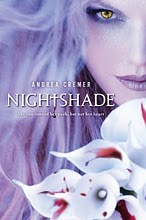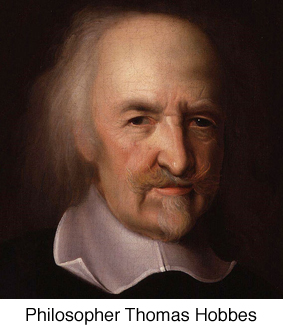I have a confession: I'm 32 years old and I read a young adult novel about werewolves.
I'm not afraid to admit this, because Andrea Cremer writes with an accomplished and intelligent voice that won't give adult readers headaches. Cremer's Nightshade is a smart blend of romance, action, philosophy, and pagan witchcraft. And, yes, high-schoolers shape-shifting into wolves.
Instead of tip-toeing around tough issues, she tackles them head-on. "I know how to talk to students," Cremer, who teaches "at a very nice liberal arts college in St. Paul, Minnesota," blogged. "I have a Ph.D. in history and I understand the ways in which violence, religion, and sexuality have shaped societies... These subjects shouldn't be avoided or hidden. They need to be discussed."
Cremer recently spoke with me about Nightshade, which debuted on The New York Times Bestseller list in October.
***
 Huffington Post: Ren, Nightshade's resident bad boy, obviously cares for his fiancée Calla (the series' heroine). This makes it hard to dislike him, even as he takes full advantage of the sexual double standard and fools around with other girls on the side.
Huffington Post: Ren, Nightshade's resident bad boy, obviously cares for his fiancée Calla (the series' heroine). This makes it hard to dislike him, even as he takes full advantage of the sexual double standard and fools around with other girls on the side.
Andrea Cremer: Ren has issues, serious issues that will be revealed in the coming books of the series. I agree that he's likable, and incredibly desirable, but I do think the fact that Ren has so many fans bespeaks to a tendency that the bad boy can be redeemed or changed whereas a fallen woman is always fallen.
HP: What does it say about us as a society that we're so eager to forgive the bad boy for his sins (i.e. he's just being a "player"), but would be quick to disown a woman who exhibited the same behavior?
AC: It's the 21st century and young women are still very much in the shadow of a Madonna/whore complex. That double standard was something I wanted to bring out starkly in the series because I find it so deeply troubling. A young woman's sexual awakening shouldn't be something she is ashamed of or punished for. It still appears to be the case that when it comes to sex a large swath of the population believes "boys will be boys" but girls have to be "responsible" - which boils down to girls carrying the social and physical burden of sex and its consequences without being given any space in which to understand their sexuality in a positive and accepting away.
HP: The werewolf regime that Calla and her friends serve under is fairly totalitarian, which might be a foreign concept (literally and figuratively) to modern day American teenagers. Did you have any concern that young adults in the US wouldn't be able to identify with the characters' struggles?
AC: I wasn't worried about young adults being able to relate to oppression - it's simply a matter of scale. At age 14 you can feel utterly oppressed by a curfew or limited phone time. It may seem flip to compare that to a totalitarian regime but I think, particularly for teens. it's easy to understand what it would be like, and how unfair it would feel, to have your choices limited. Our mantra in American culture (whether it's true or not) is that the benefit of living here is the freedom to be or do whatever your dream is. The thought that the pursuit of happiness could be removed is very frightening and something that resonates no matter what your understanding of historical totalitarianism is.
 HP: Not only does Thomas Hobbes's philosophical ideas influence Nightshade, but Hobbes himself actually plays a role in the back story. Why Hobbes?
HP: Not only does Thomas Hobbes's philosophical ideas influence Nightshade, but Hobbes himself actually plays a role in the back story. Why Hobbes?
AC: My research [as a professor] focuses on the intersection of violence, gender/sexuality, and religion in the early modern period. I've always been drawn to competing Enlightenment philosophies about the state of nature. Hobbes offered a rather dark path into a plot that debates fate versus free will as his idea of a "war of all against all" posits that humans are inherently violent and societal order only results from coercion.
HP: I can't think of a single book or television series whose ending has universally pleased all of its fans. Harry Potter, Twilight, LOST, Seinfeld, or The Sopranos--there's always some amount of grumbling. Is this something you're conscious of while writing the finale to your trilogy?
AC: I do think that, as an author, you have to let go of the hope that the ending will please everyone. It's impossible to please everyone. I knew how the trilogy would end when I started writing it. For me it was the only way it could end. I hope that most readers will find that the conclusion resonates with them.
HP: And if it doesn't?
AC: If it doesn't, I hope they don't chase me down with pitchforks and torches!
***
Wolfsbane, the second book in the Nightshade trilogy, will be released next July.
Thomas Hobbes Image: Public Domain.